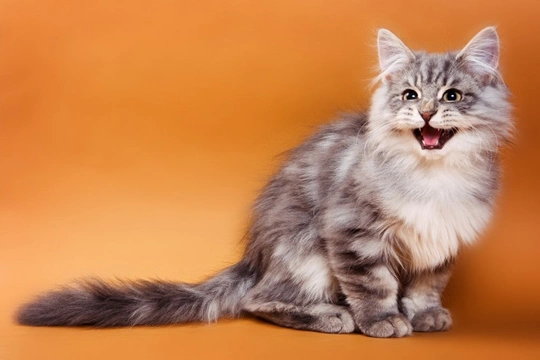Pets
Pets for studWanted petsBreedersAccessories & services
Knowledge hub
Support
Support & safety portal
Do you speak meow?
All cats have their own individual personalities that are distinct from each other and can show a lot of variation even across cats of the same breed, and one of the elements that can vary a lot from cat to cat is how vocal they are, or how much they like to communicate through their meows! Some cats will go through their entire lives without ever making much more than a peep, whilst some breeds are widely known to be generally very vocal and noisy, such as the Siamese and the Bengal breeds!
Over time, most cat owners will actually begin to learn what their cat’s core meows mean, and what their cats are trying to say to them, and for each individual cat, the type of meow that they possess and when and how they will use it will vary considerably, and so it would not be possible to give a definitive listing of different meow sounds and what they mean!
That being said, if you are trying to interpret your cat’s meows or your cat has recently become more chatty than normal, it can help to develop a basic understanding of the various reasons why cats meow in general, as you may not even have considered some of them. In this article, we will provide a rundown of some of the most common and universal reasons for cats to be vocal and meow, and what they mean. Read on to learn more.
To say hi
If your cat meows when you first wake up in the morning or when you get home from work, they are probably just saying hi, and will expect you to say hi back! They might also be saying “hi can I have food now?” especially if they have been on their own for a bit!
For attention
If your cat feels that you are concentrating on something else and not them, they might also meow generally to get your attention, and to convince you to play with them or pet them! If simply sitting in front of you or nudging your hand does not get the desired response, they will probably follow this up with a meow to find out why!
For food
You might well notice that your cat is at their most vocal when it is approaching their dinner time, or if you make the rookie mistake of trying to make a tuna sandwich while your cat is in! The majority of cats who are fed at around the same time each day soon learn to judge when it is dinner time, and will remind you of this in good time, often very vocally!
Surprise
If your cat is surprised or walks into a room and finds you there unexpectedly, they might let out a little meow or chirrup in surprise! This can be quite amusing, as the query in that little meow is often very clear!
Hunting and chattering
Whilst cats that are hunting are sometimes as silent as possible in order to allow for a stealthy approach, there is also a unique vocal sound that some cats make as part of hunting behaviour that sounds like a trilling or chattering sound in their throats when they are stalking prey. It is thought that this might potentially be mimicry of bird sounds, in an attempt to successfully hunt smaller birds, but nobody knows for sure why cats do this, nor what purpose it serves!
Not all cats make this sound at all, and some cats will only make it when hunting live prey and not when playing!
Sickness
Cats tend to retreat and hide out when they are ill, and do what they can to mask their pain so that they do not become a target for predators. However, some cats that are in pain or feeling unwell may become very vocal, making a mournful or piercing howling or meowing sound that can be quite distinctive. If your cat appears to be doing this, never ignore it, as something may be wrong.
Age-related brain changes
As cats reach old age, their brain chemistry and thought processes begin to change and break down towards the end of their lives. This can manifest as a form of dementia, in the same way that it can in people, and out-of-character meowing or vocalising at odd times may accompany this. Ask your vet for more information if you have any concerns.
Boredom or loneliness
A cat that is bored or lonely may meow plaintively for company or entertainment, so ensure that you are spending enough time with your cat and that they have plenty to do and play with to keep them entertained the rest of the time.
Mating
Cats that are ready to mate or that are looking for a mate are often the most vocal of all, and will make a wide range of very loud screeches and shrieks as part of this! Unless you have planned to breed from your cat, having them spayed or neutered as soon as they are old enough will prevent this.



